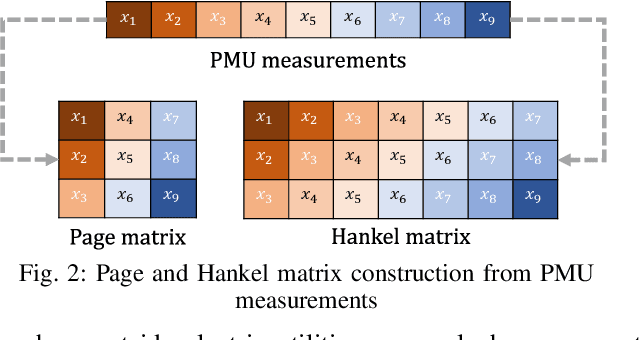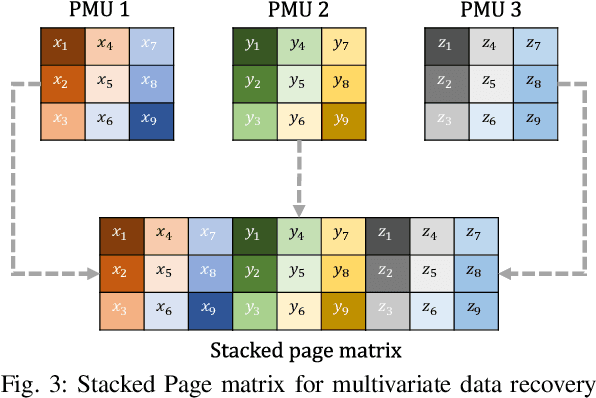Virgilio A. Centeno
Robust Event Classification Using Imperfect Real-world PMU Data
Oct 19, 2021



Abstract:This paper studies robust event classification using imperfect real-world phasor measurement unit (PMU) data. By analyzing the real-world PMU data, we find it is challenging to directly use this dataset for event classifiers due to the low data quality observed in PMU measurements and event logs. To address these challenges, we develop a novel machine learning framework for training robust event classifiers, which consists of three main steps: data preprocessing, fine-grained event data extraction, and feature engineering. Specifically, the data preprocessing step addresses the data quality issues of PMU measurements (e.g., bad data and missing data); in the fine-grained event data extraction step, a model-free event detection method is developed to accurately localize the events from the inaccurate event timestamps in the event logs; and the feature engineering step constructs the event features based on the patterns of different event types, in order to improve the performance and the interpretability of the event classifiers. Based on the proposed framework, we develop a workflow for event classification using the real-world PMU data streaming into the system in real-time. Using the proposed framework, robust event classifiers can be efficiently trained based on many off-the-shelf lightweight machine learning models. Numerical experiments using the real-world dataset from the Western Interconnection of the U.S power transmission grid show that the event classifiers trained under the proposed framework can achieve high classification accuracy while being robust against low-quality data.
A Model-Agnostic Method for PMU Data Recovery Using Optimal Singular Value Thresholding
Aug 06, 2021



Abstract:This paper presents a fast model-agnostic method for recovering noisy Phasor Measurement Unit (PMU) datastreams with missing entries. The measurements are first transformed into a Page matrix, and the original signals are reconstructed using low-rank matrix estimation based on optimal singular value thresholding. Two variations of the recovery algorithm are shown- a) an offline block-processing method for imputing past measurements, and b) an online method for predicting future measurements. Information within a PMU channel (temporal correlation) as well as from different PMUchannels in a network (spatial correlation) are utilized to recover degraded data. The proposed method is fast and needs no explicit knowledge of the underlying system model or measurement noise distribution. The performance of the recovery algorithms is illustrated using simulated measurements from the IEEE 39-bus test system as well as real measurements from an anonymized U.S. electric utility. Extensive numeric tests show that the original signals can be accurately recovered in the presence of additive noise, consecutive data drop as well as simultaneous data erasure across multiple PMU channels.
 Add to Chrome
Add to Chrome Add to Firefox
Add to Firefox Add to Edge
Add to Edge